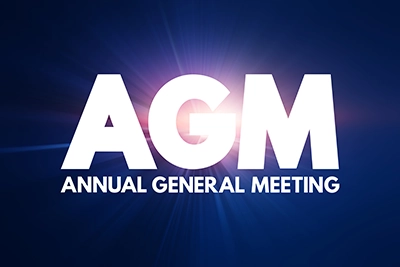Library Archive
Planning Reform Consultation
Reform of the planning system is a central priority for the new government as it offers the potential to address the current housing crisis whilst also delivering wider economic growth.
A consultation covering changes to the National Planning Policy Framework (NPPF) has been issued setting out the government’s plans including:
- A new methodology for calculating local authority housing targets designed to support delivery of the Government’s manifesto commitment of 1.5 million new homes in this Parliament.
- A broader definition of brownfield land and an assumption that applications to develop brownfield land will be approved.
- Recognition that to achieve housebuilding targets, councils will need to consider development on parts of the Green Belt that are of low environmental quality, referred to as the ‘grey belt’.
- Clarifications around the ‘presumption in favour of sustainable development’ including new safeguards against poor quality development.
- Raising building densities in urban areas.
- Measures to improve the delivery of affordable and social housing with an increased priority and focus on social rent.
The consultation runs from 30th August 2024 to 24th September 2024
CWAG Newsletter – August 2024
This Update includes the following

Housing Policy Update
In a major policy speech on 30th July Angela Raynor, Deputy Prime Minister and Housing Secretary, set out how the new government intends to deliver on the Party’s manifesto commitments on housing. The Secretary of State has also written to local authorities setting out the detail of the government’s programme. Read letter here
Planning Reform
Reform of the planning system is regarded as the key to addressing current housing shortages and delivering wider economic growth. A consultation covering changes to the National Planning Policy Framework (NPPF) was issued to coincide with Angela Raynor’s policy statement. The consultation includes the following proposed changes:
- A new mandatory standard methodology for assessing housing need and a requirement for local authorities to plan for the resulting figure.
- A requirement to identify ‘grey belt’ land within the Green Belt, to be brought forward into the planning system.
- New “golden rules” for land released in the Green Belt to ensure it delivers in the public interest including a requirement that development should include 50% affordable homes along infrastructure such as schools and GP surgeries.
- Broadening the existing definition of brownfield land and a strengthened expectation that applications on brownfield sites will be approved.
- Raising building densities in urban areas.
- Clarifications around the ‘presumption in favour of sustainable development’ including new safeguards against poor quality development.
Housing Targets
Mandatory housing targets are to be reinstated requiring all councils in England to plan for increased housebuilding in their areas. The target set out in the Labour manifesto of 1.5 million homes over the life of the Parliament has been uplifted from 300,000 homes per year to just over 370,000 homes per year. This reflects a change in the methodology for calculating targets to ensure development is proportionate to the size of existing communities, while adding an extra level of ambition in the most unaffordable areas. The target for London has been reduced from 100,000 homes to around 80,000 homes per year.
Green Belt Land
Commitments to focus development on previously developed brownfield sites remain, however there is an expectation that in order to achieve housebuilding targets, councils will need to consider development on parts of the Green Belt that are of low environmental quality, referred to as the ‘grey belt’.
Social Housing
The Secretary of State confirmed that the government has ambitious plans for social and affordable housing, namely to ‘deliver the biggest boost to social and affordable housing in a generation’. Detailed plans will be brought forward as part of the multiyear spending review due to conclude in Spring 2025.
There will also be an announcement on future social housing rents as part of the Autumn Budget Statement on the 30th October which will ensure council housing finances are put onto a secure footing with rent stability enabling councils ‘to be able to borrow and invest in new and existing homes’.
Right to Buy
The Government has announced a review of the Right to Buy including eligibility criteria and protections for new homes. A consultation on changes will be issued in the autumn. The increased Right to Buy discounts introduced in 2012 will also be reviewed and changes implemented via secondary legislation.
Increased flexibilities on how councils can use Right to Buy receipts have also been announced. The following changes will come into effect immediately and will apply for 2 years initially, subject to review:
- Removing the cap on the percentage of replacements homes that can be delivered as acquisitions.
- Removing the 50% cap on the level of RTB receipts that can be used to fund the cost of a replacement home.
- Allowing councils to combine Right to Buy receipts with section 106 contributions.
Awaab’s Law
The Government has also confirmed that Awaab’s Law will be introduced into the social rented sector, with more detail and secondary legislation to implement this in due course.
Housing Legislation in the King’s Speech
The official opening of Parliament and the King’s Speech on 17th July set out the new Government’s planned legislative programme for the first parliamentary session. There are 4 Bills directly relevant to housing.
The Planning and Infrastructure Bill aims to speed up development by delivering improvements to the planning system including:
- Modernising planning committees and increasing capacity at the local planning authority level.
- Changing the rules surrounding Nationally Significant Infrastructure Projects to accelerate the planning permission process.
- Unlocking more sites for development through reform of the compulsory purchase compensation rules. The proposals aim to ensure that compensation paid to landowners is “fair but not excessive” in cases involving affordable housing and other important social and physical infrastructure.
- Using developer nature recovery contributions to help unlock stalled development sites.
The Renters Rights Bill is a carryover from the Conservative administration; a similar Bill was a casualty when the General Election was called unexpectedly. The King’s speech confirms that the Labour government will seek to continue the proposed rental sector reforms along with some additional measures. The key areas to be covered by this legislation are:
- Abolishing Section 21 ‘no fault evictions’ alongside clear and expanded possession grounds so landlords can reclaim their properties when they need to.
- Strengthening tenants’ rights and protections, including enabling tenants to challenge excessive rent and new laws to end the practice of rental bidding wars by landlords and letting agents.
- Giving tenants the right to request a pet, which landlords must consider and cannot unreasonably refuse.
- Applying a Decent Homes Standard to the private rented sector – tackling the blight of poor-quality homes.
- Applying ‘Awaab’s Law’ to the private rented sector.
- Creating a digital private rented sector database to bring together key information for landlords, tenants, and councils to target enforcement more effectively.
- A new ombudsman service for the private rented sector that will set up to provide fair, impartial and binding resolution, to both landlords and tenants and reducing the need to go to court.
- Making it illegal for landlords to discriminate against tenants in receipt of benefits or with children when choosing to let their property.
- Measures to strengthen the enforcement powers of local councils including new investigatory powers intended to make it easier for councils to identify and fine unscrupulous landlords.
The Kings Speech also referred to a Draft Leasehold and Commonhold Reform Bill signalling the Government’s intention to re-examine the issue of commonhold and leaseholder rights, with the intention of moving beyond the Conservative government’s Leasehold and Freehold Reform Act. In addition, the English Devolution Bill includes the prospect of further devolution of housing powers to local government level.
Recent Publications
Consumer Regulation Review 2023/24 (published July 2024)
The Regulator of Social Housing has published the annual review of its consumer regulation work for the past year. Although the report covers the period prior to the new regulatory approach, the learning points and case studies are highly relevant in the context of the new standards.
Key messages:
- Landlords must meet all health and safety requirements to keep tenants safe. The report highlights cases where required checks for fire, gas, electrical, asbestos and water safety had not been completed. There were cases where landlords could not provide assurance that all homes had smoke alarms and carbon monoxide detectors. Also, in some cases remedial actions identified in fire risk assessments had not been completed within the specified timescales.
- Landlords are expected to know the condition of the homes they manage and have effective systems and reliable information on condition and quality which is used to ensure tenants homes are good quality, safe and well-maintained.
- Complaints can provide an important source of insight and intelligence for landlords about how their systems are working. Landlords must have the systems in place to learn from complaints when things go wrong.
- Boards and councillors need to understand the required outcomes of the consumer standards and have good oversight and scrutiny arrangements.
- Landlords need to engage effectively with tenants, treating them with fairness and respect.
- Co-regulation requires landlords to refer themselves to RSH when they find a material issue, or a potential material issue, so it can be resolved promptly if required.
Why Councils are underinvesting in housing and how an updated debt settlement could put that right – Joint CIH / Savills Report (July 2024)
This report looks at options for addressing the erosion of the 2012 HRA settlement in recent years which has left HRAs chronically under resourced.
Running through the options available to secure additional funding for council housing, the report makes the case for re-opening the 2012 settlement as the most effective and straightforward approach.
This would involve transferring the estimated £17 billion of unsustainable debt from local authorities to central government enabling council housing finance to become sustainable for the long term, in line with the goal in 2012. An intervention on this scale is required to deliver headroom for investment in existing stock and to recreate the newbuild capacity that existed in 2012.
Radix Big Tent Housing Commission – Public Memorandum to the Housing Minister from Dame Kate Barker CBE (July 2024)
Kate Barker who 20 years ago led a landmark review into housing supply in the UK is currently Chair of the above Commission which aims to propose practical solutions to current housing problems. Following the General Election, the Commission has opted to publish some early policy insights in a memorandum shared with Matthew Pennycock the incoming housing minister.
Switching to social rent: delivering the homes we need – New Economics Foundation (June 2024)
This paper sets out the case for the new government to reform housing grant funding and refocus the programme on social rent. Conservative administrations have concentrated on funding affordable rent and shared ownership at the expense of social rent. The paper argues that this is fiscally inefficient because much of this housing would be viable without grant and funding should therefore be freed up for social rent which is undeliverable without significant grant input.
Addressing the housing crisis will also require fundamental reform of the way housing grant is allocated and administered, bringing an end to Treasury restrictions which have left Affordable Homes Programme (AHP) funding and Housing Infrastructure Fund (HIF) grants unspent.
Diary Date – CWAG Annual General Meeting
This year the CWAG Annual General Meeting will be on Thursday 19th September 2024 (10.00 -12.00). The meeting will take place over Teams. Please note the date in your diary.
Our speaker this year will be Eamon McGoldrick, Managing Director of the National Federation of ALMOs. Eamon will discuss progress on current proposals for sector-led improvement. Recent press reports have highlighted moves to set up a new representative body for council housing to achieve a strong coherent voice on policy matters and new arrangements to promote and share good practice. This is a timely opportunity to find out more about these proposals and consider the implications for councils with ALMOs.
The formal business of the AGM involves electing representatives of the Executive Group as well as reviewing the group’s finances and operating arrangements and Terms of Reference.

CWAG Newsletter – June 2024
General Election – What the Parties are offering on Housing?
The summaries below highlight the key policy areas and approaches as set out in the Party Election Manifestos:

Building New Homes
Labour
Plan to build 1.5 million new homes in England over the next parliament. Proposals include:
- Restoring mandatory housing targets and strengthening the presumption in favour of sustainable development.
- Prioritising a ‘brownfield first’ approach and a more strategic approach to the Green Belt which would allow the release of lower quality ‘grey belt’ land under certain conditions.
- Building a new generation of new towns.
- Introducing new mechanisms for cross boundary strategic planning that will require Combined and Mayoral Authorities to plan strategically for growth in their areas.
- Reform of compulsory purchase compensation rules to improve site assembly and address the inflated price premiums achieved by landowners on land should planning permission be granted.
- Supporting local authorities to fund additional planning officers, through increasing the rate of the stamp duty surcharge paid by non-UK residents.
Conservatives
Plan to build 1.6 million new homes in England over the next parliament. Proposals include:
- Abolishing legacy EU nutrient neutrality rules to unlock development of 100,000 new homes with existing planning permissions.
- Fast tracking the delivery of homes on brownfield land in urban areas and setting up locally led urban development corporations.
- Raising housing density levels in inner London (to levels comparable with other European cities).
- Supporting small and local builders by requiring councils to set aside land for them and lifting Section 106 burdens on smaller sites.
Liberal Democrats
Plan to increase building of new homes to 380,000 per year across the UK. Proposals include:
- Building 10 new garden cities
- Reforming the Land Compensation Act 1961 to allow councils to buy land for housing based on current use value rather than a hope value basis.
- Improving planning outcomes by properly funding local planning departments, by allowing local authorities to set their own fees.
- Expanding neighbourhood planning across England.
- Expanding rural housing provision by encouraging the use of rural exception sites.
- Trialling Community Land Auctions to help fund vital local services and ensure local communities receive a fair share of the benefits of new development in their area.
- Encouraging development of existing brownfield sites.
- Introducing ‘use-it-or-lose-it’ planning permissions.
- Investing in skills, training and modern methods of construction.
Social and Affordable Housing
Labour
The labour manifesto commits to delivering the biggest increase in social and affordable housebuilding in a generation. This will be achieved by:
- Strengthening planning obligations to ensure new developments provide more affordable homes.
- Prioritising the building of new social rented homes.
- Making changes to the Affordable Homes Programme to ensure that it delivers more homes from existing funding.
- Building capacity to enable councils and housing associations to make a greater contribution to affordable housing supply.
Conservatives
The Conservative manifesto makes only two references to social housing; to deliver on existing commitments to introduce ‘Local Connection’ and ‘UK Connection’ tests for social housing and to implement a ‘three strikes and you’re out’ expectation of social housing landlords in cases of anti-social behaviour.
There is also a commitment to boost the availability of affordable housing for local people in rural areas and renew the Affordable Homes Programme to deliver homes of all tenures, and focus on regenerating and improving housing estates.
Liberal Democrats
The Liberal Democrat manifesto includes a target to build 150,000 new social homes per year. Also included are measures to protect the rights of social renters and proactively enforce clear standards and strict time limits for repairs.
Right to Buy
Labour
With the aim of better protecting the existing social rented stock, Labour will review the increased right to buy discounts introduced in 2012 and increase protections on newly-built social housing.
Conservatives
Plan to maintain their existing approach by ensuring RTB discounts continue to rise with inflation. They will also fight any plan by local authorities to abolish the Right to Buy altogether.
Liberal Democrats
Would give local authorities (and National Park Authorities) the powers to end Right to Buy in their areas.

Energy Efficiency / Net Zero
Labour
Labour plan to invest an extra £6.6 billion over the next parliament in initiatives to upgrade energy efficiency and cut bills for families, doubling the existing planned government investment. The Warm Homes Plan will offer offer grants and low interest loans to support investment in insulation and other improvements such as solar panels, batteries and low carbon heating to cut bills.
Conservatives
The Conservatives plan to spend £6 billion on energy efficiency over the next three years to make around a million homes warmer. In addition, an energy efficiency voucher scheme, open to every household in England, will be available to support the installation of energy efficiency measures and solar panels, helping families lower their bills.
Liberal Democrats
Liberal Democrats are committed to making homes warmer and cheaper to heat with a ten-year emergency upgrade programme. Starting with free insulation and heat pumps for those on low incomes, and ensuring that all new homes are zero-carbon.
Private Rented Sector
Labour
Labour will immediately abolish Section 21 ‘no fault’ evictions, preventing private renters being exploited and discriminated against by empowering them to challenge unreasonable rent increases. In addition, Labour will take steps to raise standards in the PRS, including extending ‘Awaab’s Law’ and ensuring homes meet minimum energy efficiency standards by 2030.
Conservatives
Conservatives will pass a Renters Reform Bill, alongside delivering the court reforms necessary to fully abolish Section 21 and strengthen other grounds for landlords to evict private tenants guilty of anti-social behaviour.
Liberal Democrats
Liberal Democrats will deliver a fair deal for renters by immediately banning no-fault evictions, making three-year tenancies the default, and creating a national register of licensed landlords
Home Ownership Initiatives / First time buyers
Labour
Labour will introduce a permanent, comprehensive mortgage guarantee scheme, to support first-time buyers who struggle to save for a deposit, lowering mortgage costs. In addition, Labour proposes to work with local authorities to give first-time buyers the first chance to buy homes on new developments, preventing off plan sales to international investors.
Conservatives
The Conservatives would continue to offer a Mortgage Guarantee scheme and permanently increase the threshold at which first time buyers pay Stamp Duty to £425,000 ( from £300,000). In addition they plan to introduce a new Help to Buy scheme which would provide first-time buyers with an equity loan of up to 20% towards the cost of a new build home, enabling first-time buyers to get onto the housing ladder with a 5% deposit. The scheme will be part funded by contributions from house builders.
Liberal Democrats
Liberal democrats would help people who cannot afford a deposit to own their own homes by introducing a new Rent to Own model for social housing where rent payments give tenants an increasing stake in the property, owning it outright after 30 years.
Homelessness and Rough Sleeping
Labour
Labour is committed to developing a new cross-government strategy, working with Mayors and Councils across the country, to put Britain back on track to ending homelessness.
Conservatives
The Conservatives plan to continue with existing plans to end rough sleeping.
Liberal Democrats
The Liberal Democrat manifesto commits to ending rough sleeping within the next parliament by:
- Urgently publishing a cross-Whitehall plan to end all forms of homelessness.
- Exempting groups of homeless people, and those at risk of homelessness, from the Shared Accommodation Rate.
- Introducing a ‘somewhere safe to stay’ legal duty to ensure that everyone who is at risk of sleeping rough is provided with emergency accommodation and an assessment of their needs.
- Ensuring sufficient financial resources for local authorities to deliver the Homelessness Reduction Act and provide accommodation for survivors of domestic abuse.
Recent Publications
This month there are a number of new reports addressing issues highlighted as part of the General Election campaign:
Report by New Economics Foundation – Reforming Right to Buy – June 2024
This is another report looking to influence the debate around the future of the Right to Buy. It outlines a package of proposed reforms that would retain the RTB in a format that no longer exacerbates the current housing crisis.
The key to delivering meaningful change is to devolve decision making around the RTB to local authorities, enabling councillors, who understand local housing issues, to decide on how the policy should be offered in their area.
Each local authority would have powers:
- to suspend right to buy where it can be demonstrated that the policy is contributing to affordable housing shortages.
- to end right to buy in respect of newly built or acquired homes.
- to introduce measures to prevent homes sold under the right to buy from being let in the private rented sector.
- Reduce discounts and extend qualifying periods.
In addition, Treasury rules should be amended to allow councils greater flexibility and full access to receipts to better provide replacement stock.
Housing Subsidy’s long-term shift from supply to demand and what might be done about it – Prof Kenneth Gibb – UK Collaborative Centre for Housing Evidence – June 2024
This paper examines the long-term shift from supply side housing subsidies providing capital subsidies to build new homes to personal demand side personal housing subsidies to help people pay for housing. This shift has been in progress for the past 50 years resulting in the housing cost element of universal credit representing the largest government subsidy to housing (amounting to more than £31 billion in 2023/24 which equates to about one-tenth of the entire social security budget).
Whilst the paper makes the case for reversing the reliance on demand led subsidies, it sets out the immense difficulties involved in shifting back to capital funding in any material way. Change cannot be accomplished quickly and involves significant cost and funding challenges in advance of beneficial impacts coming into play. However, there is a clear case for rebalancing supply and demand subsidies as part of a consistent long-term policy for the housing system.
English Housing Supply Update Q1 2024 – Savills
This report highlights that planning consents for new housing have fallen below current completions for the first time since 2009 with poor outlook for new home delivery. 232,500 new homes were built in the twelve months to Q1 2024, but only c. 222,000 new homes are estimated to have gained full planning consent in that time.
As a result, completions are now likely to fall even further below housing need – Savills forecasts suggest that the number of new homes being built may be as low as 160,000 in 2024/25.
Diary Date – LGA Webinar – New Regulatory Regimes – Postponed
The LGA webinar bringing together the Housing Ombudsman and Regulator of Social Housing to discuss recent changes and new regulatory requirements has been postponed until after the General Election.
The new date is 25th July 2024 (10am – 11am) For further details see the LGA website
Diary Date – CWAG Annual General Meeting
This will be held on Thursday 19th September 2024 (between 10.00 and 12.00) via Teams.
Presentation Slides – CWAG Finance and Business Planning Workshop – June 2024
Workshop facilitated by Steve Partridge (Savills) covering
- Economic pressures undiminished for HRA sector
- Revising national projections
- Impact of rising capital pressures
- Revenue Repairs
- Reserves and savings
- Building safety
- Energy efficiency and net zero carbon
- Newbuild development – where are we?
- Other revenue pressures
- Future investment
CWAG Newsletter – May 2024
This Update includes the following

Progress of Renters Reform Bill
After almost a year, the Renters Reform Bill finally completed its passage through the House of Commons on 24th April 2024. Delays were due to concerns around the capacity of the Courts to process possession cases.
A significant number of amendments have been made including:
- Tenants will not be able to give notice that they wish to end a tenancy for at least 6 months after taking it on, rather than after two months as previously proposed.
- Abolition of section 21 “no fault” evictions will not take place until court reforms have been implemented (the Opposition continues to press for a clearer implementation date as the legislation currently leaves the timing a matter for Ministerial judgement).
- Provisions have been added to allow landlords to recover possession of properties let to full-time students at the end of the academic year to ensure these are available for reletting to students in the next academic year.
- The Minister also committed to undertake a review of local authority private rented sector licensing schemes with “the aim of reducing burdens on landlords”.
- The Government will review the implementation of the tenancy reforms within 18 months of measures being applied to existing tenancies.
The Bill has now moved to the House of Lords receiving it’s first and second reading in the on 1st May 2024 and 15th May 2024 respectively. Secretary of State, Michael Gove has stated the government’s intention to enact the legislation by the ‘summer’ with Implementation by the Autumn.
Consultation Outcome – Changes to RSH Fee Regime
The Regulator of Social Housing (RSH) has announced the outcome of its consultation on proposed changes to the charging regime for social landlords. The Decision Statement indicates that there was broad support for the new approach which will see fees paid by social landlords to cover the full cost of regulation in the sector.
For councils, this will mean a requirement to pay fees for the first time to cover the cost of the RSH’s more active regulation against the Consumer Standards, including the new the inspections regime. Councils owning over 1000 homes will be charged at a pro rata rate of £6.63 per property.
The new arrangements come into effect on 1 July 2024. Invoices will be sent out in June. For more details see the RSH Decision Statement
Recent Publications
Reforming the Right to Buy (The Housing Forum) – April 2024
Whilst ending the Right to Buy altogether would be the best way of safeguarding the social housing stock, this report recognises that all the main political parties currently want to retain the RTB in some form. This briefing paper sets out a series of recommendations to tackle the most problematic aspects of the current scheme including:
- Removing the RTB from Newbuild homes
- Using covenants to prevent the letting out of property, or alternatively requiring properties to be offered to the council to be let if not used for owner occupation.
- Allowing councils to receive the full value of RTB sales.
- Modernising exemption criteria e.g. to include larger homes and bungalows.
- Discounts should be reduced to no more than 20%.
The Finances and Sustainability of the Social Housing Sector (LUHC Committee) – Published 29th April 2024
This report from the Levelling Up Housing and Communities Select Committee highlights the severe financial pressures currently facing the social housing sector.
Current issues have arisen because of repeated government-imposed rent caps coinciding with unprecedented costs for decarbonisation, fire safety and the regeneration of older homes. Whilst overall the sector is deemed to be generally resilient, the impact on social housing newbuild has been stark as providers retrench and focus on their existing stock.
Given the chronic shortage of social housing the Committee recommends that the Government should set and publish a target for the number of social homes it intends to build each year, prioritising grant funding for social housing rather than the current focus on affordable rent and shared ownership. The Government is also urged to use the planning system to support social housing build schemes using land value capture as a tool to ensure land price does not inhibit development of new social homes. Other proposals include greater flexibility in the net additionality guidelines used by Homes England as these are a barrier to regeneration schemes in many areas. The Government is also urged to fund fire safety works in the social housing sector on the same basis at currently available to the private sector.
Rethinking Repairs and Maintenance : 12 Guiding Principles (Chartered Institute of Housing / National Housing Federation) – Published 9th May 2024
This report relates to one of the action plan recommendations in the 2023 CIH / NHF ‘Better Social Housing Review’, namely ‘Housing associations should partner with residents, contractors and frontline staff to develop and apply new standards defining what an excellent maintenance and repairs process looks like.’
This guidance identifies twelve guiding principles for how social landlords should work with residents to improve the repairs and maintenance services. The 12 principles are grouped into themes which are intended to be addressed consecutively, starting with culture and resident engagement, tackling discrimination, and involving frontline colleagues to understand and improve performance.
Future Meetings
CWAG Finance and Business Planning Meeting Thursday 6th June 2024 (10.00 – 13.00)
New Regulatory Regimes – LGA with the Housing Ombudsman and Regulator of Social Housing – Thursday 13th June 2024 (3 pm. – 4 pm)
The LGA is hosting a webinar that will bring together the Housing Ombudsman and Regulator of Social Housing to discuss the recent changes and new requirements impacting on councils.
A representative from the Housing Ombudsman will discuss the new Complaints Handling Code, including how local authorities should identify the member responsible under a council’s statutory duty. The Regulator of Social Housing will set out the powers available to them under the new regulatory regime, including inspections and grading of local authority housing services. There will be opportunities to raise issues and question both before and during the event.
For further details see the LGA website

